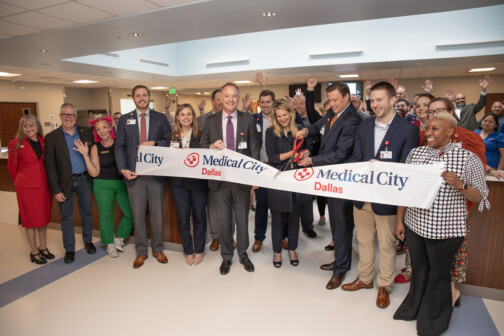The Supreme Court has essentially cemented Obamacare subsidies for low- and middle-income Americans in all 50 states following a 6-3 ruling Thursday in the about-as-landmark-as-they-come court case King v. Burwell.
Now, dissidents will have to shift their aim to Congress and the presidency in the coming years to further war against those six clunky words inside the Affordable Care Act that were at the center of this case: whether “an exchange established by the state” means that subsidies are only legally permitted in the states that operate their own exchanges, rather than the remaining 34, which allow the feds to run their marketplaces.
Six Supreme Court justices made it clear that they feel that interpretation is not what the overarching law intended. As Chief Justice John Roberts wrote in the majority opinion, “Congress passed the Affordable Care Act to improve health insurance markets, not to destroy them.”
This wound up being a statutory fight rather than one over outright constitutionality. Roberts argues the court must keep in mind that “the meaning—or ambiguity—of certain words or phrases may only become evident when placed in context.” And in this case, the context established that the subsidies were intended to be extended to residents of a certain income in all states, no matter whether they purchased Obamacare coverage through a federal or state marketplace.
In Texas, a hair more than 800,000 residents (of the 1.2 million total who have purchased coverage) have subsidies of some sort. The Kaiser Family Foundation says $204 million flows in from the federal spigot monthly, averaging to about $247 per person. If that went away, some folks could have their premiums spike by as much as 300 percent. Considering their income, they likely wouldn’t be able to afford it.
In the coming days, look for a much longer feature about what this all means and what the future holds—education, access, awareness, and a slew of other challenges remain. But, as of Thursday, so do the subsidies.
Local reactions, culled from interviews and prepared statements and listed alphabetically, are below.
Greg Abbott, governor of Texas:
“The Supreme Court abandoned the Constitution to resuscitate a failing healthcare law. Today’s action underscores why it is now more important than ever to ensure we elect a president who will repeal Obamacare and enact real health care reforms.”
Erol Akdamar, CEO of HCA North Texas:
“We are very pleased with the court’s ruling. As we have said before, we support efforts that improve access by providing affordable coverage for the uninsured.”
Joel Allison, CEO of Baylor Scott & White Health:
“We can breathe a sigh of relief. I think it’s a good day for hospitals and health systems in Texas and across the nation, and it’s a very good day for individuals in the state of Texas who receive subsidies.
… The rate of Texans without health insurance has fallen 8 percentage points since enrollment in the ACA began. That’s a very significant step in the right direction. Again, we have to work on access to care. As we’ve said, just having insurance doesn’t guarantee access, so we have to continue to find ways to get people insurance and access to insurance, but ensure that we’re providing it in models that give people access to safe quality and compassionate care.
… We see a very bright future by really focusing on the consumer and making sure that we’re doing everything we can to improve quality and reduce cost and be recognized with reimbursement models that reflect value.“
Barclay Berdan, CEO of Texas Health Resources:
“The Supreme Court’s decision in King versus Burwell is good news for more than one million Texans who received subsidies to buy insurance through the marketplace. It’s also good news for every other insured Texan because the larger pool of insured people helps control the costs of rising premiums. With access to coverage, people are more likely to seek care in a timely manner. We know that access to prevention and early intervention can improve wellbeing and overall health. By catching potential health problems early, we can also better manage the cost of care.”
Anjie Coplin, spokeswoman for Aetna’s West Region:
“The Supreme Court decision affirms that consumers can depend on subsidies to purchase health care plans on the federally facilitated exchange. Subsidies played a significant role in attracting the 6.4 million consumers who depended on subsidies to buy health care plans on the federally run health exchanges. This decision ensures that their health care benefits will not be disrupted. We believe that reform of the Affordable Care Act is still needed. We urge Congress to focus on solutions that improve quality, transition our payment system to value-based care and broaden consumer choice.”
Mimi Garcia, Texas State Director of Enroll America:
“Today’s decision from the Supreme Court is a victory for the 832,000 Texans who receive financial help to pay for their coverage through the Health Insurance Marketplace. In fact, 86% of Marketplace enrollees in Texas receive these tax credits, and the average tax credit in Texas is $247 per month. After finally being able to access quality, affordable health coverage, these consumers can now be certain that the promise of that coverage remains there for them and that they can get the care they need.”
Dr. Tom Garcia, president of the Texas Medical Association:
“Overall, it’s a positive in the sense that it reaffirms that the checks and balances (of the Constitution) are in check, but we still have a negative in that we need to fix what’s wrong with it, keep what’s good and fill in the blanks about what’s missing. But there’s still work to be done on the thing. We don’t have a revolution, but we have a lot of work to do.”
(Addressing issues on access, and using physician assistants and nurse practitioners to help meet increasing demand)…We need to stay focused on resolving those challenges that we’re going to have as the ACA continues to evolve. What you and I see in 2015 is not what we’ll see in 2020. It’ll be very different and there will be more stakeholders involved. I’m sure the mid levels will start having their say, even though we don’t necessarily want them to practice medicine. But the numbers just don’t make sense. One day, we may have to say maybe you should one day see this clinic with physician extenders. It still comes back to the fundamental issue: A patient needs to see a doctor. And a doctor needs to get reimbursed for his time. That’s the exchange and everybody wants to get into that relationship. That’s the rub, isn’t it?”
Clay Jenkins, Dallas County Judge:
“What it means is the Affordable Care Act is here to stay. It pretty much settles the legal challenges; now the challenge is to come together on a bipartisan basis and fix any problems that are inherent in any rollouts and any large endeavors and find a way in Texas to say yes to Medicaid expansion money that would provide coverage to another million Texans.
Just in my county, 133,000 citizens would have access to coverage and care if the state could just say yes to accepting our portion of that money. From a CEO’s perspective, when I look at the budget, we spend more on uncompensated care at Parkland than all other county expenditures combined. And it’s our fastest growing expense. So taking that Medicaid expansion money—which I think is the next step now that the legal challenges to the ACA are dead—taking that money would allow us to drastically improve public health for everyone in Dallas County.
So as a CEO, I look at that as the biggest game changer that is laying on the table. And it’s not just me, it’s the Dallas Regional Chamber, The North Dallas Chamber of Commerce, the Dallas Citizens Council, the DFW Hospital Council, and more entities that I can name that have come out and said we need to get this done. You’re hearing a growing voice from business that Obamacare is the law of the land and we need to work together to make it the best law it can be.”
Steve Love, president of the Dallas-Fort Worth Hospital Council:
“Many of the people who signed up and were getting subsidies were young. They’re fairly healthy, they don’t have a lot of chronic disease. If they had lost their subsidies, you would have had more—from an actuarial point of view—of the sicker patients who have more chronic illnesses left in this population which would’ve made the premiums go up by the fact that you lost some of these healthy people who lessened the risk.
Now, what does this mean for the Dallas-Fort Worth Area? Well if you look at Dallas County and Tarrant County, especially focused in Dallas, we have some of the highest uninsured rates in the state. So as a result, this is a tremendous ruling for us because the people who had signed up who were getting the subsidies can continue in North Texas. Hospitals are very excited about it, and hopefully people will continue to sign up on the exchange and we can put this behind us.”
Mike Malaise, interim senior vice president of external affairs for Parkland Health & Hospital System:
“Parkland delivered $751 million in uncompensated care last year. Much of that burden falls on local property tax payers. So these subsidies are important for Dallas County taxpayers as well as our patients. The Supreme Court’s decision does not solve the issues Texas has in terms of healthcare funding and the high volume of uninsured patients. But it will help more North Texans maintain healthcare coverage, which would otherwise be beyond their reach.”
Dr. Dan McCoy, chief medical officer of Blue Cross Blue Shield of Texas:
“Today, the U.S. Supreme Court upheld the federal rule making subsidies available to eligible individuals through federally facilitated Health Insurance Marketplaces, like the one here in Texas. This means that health insurance subsidies will continue to be available on these Marketplaces. Blue Cross and Blue Shield of Texas is reviewing the Court’s decision, and will share any additional information as we learn more. We remain focused on providing an array of affordable products and services to our members and the market. We also will continue to lead on patient-centered health care delivery reforms that promote innovation, value and high-quality care for our members.”
Ted Shaw, president and CEO of the Texas Hospital Association:
“With more than 1 million Texans purchasing private health insurance coverage through the federal marketplace and 86 percent of those receiving tax credits, Texas hospitals can breathe a sigh of relief now that the Supreme Court has ruled in favor of Burwell. Texas still leads the nation in the number of uninsured and we have significant work to do to increase access to coverage. But there is little doubt that hospitals’ financial challenges would be even greater if more than 1 million Texans were added to the rolls of uninsured.”
Dr. Jim Walton, president of the Dallas County Medical Society:
The first rule a physician learns is, “Do No Harm.” There are a wide range of ongoing healthcare policy disagreements in our state and in our nation, but we need to first “do no harm” for our patients who are caught in the middle — they need our help, and physicians want to provide care. Although we still have a lot of work to do to ensure adequate access to quality health care for vulnerable and underserved patients in our community, the Supreme Court’s decision in King v Burwell assures that over 100,00 Dallas County patients will not suddenly lose their health insurance coverage.”





